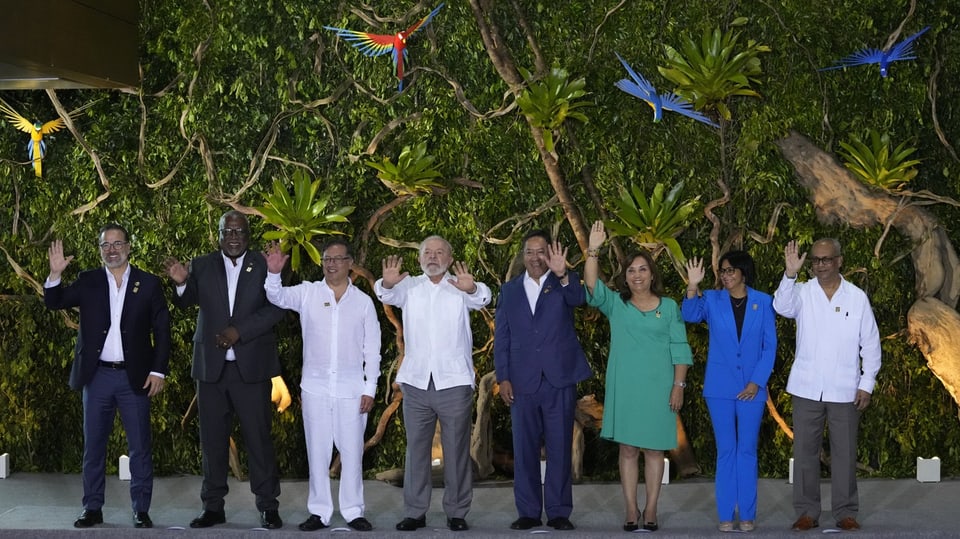- For the first time in 14 years, the heads of state and government of the South American Amazon countries have met again.
- The aim of the meeting in Belém is closer cooperation on environmental protection in the Amazonian countries.
- A controversial issue is oil production in the Amazon region.
“It has never been more urgent than now to resume and expand this cooperation,” said Brazilian President Lula da Silva.
At the beginning of the conference, the countries of Brazil, Bolivia, Ecuador, Guyana, Colombia, Peru, Suriname and Venezuela want to agree on a common position for the UN climate change conference COP28 in Dubai at the end of the year.
The topics of the summit also bring potential for conflict. Oil production in the Amazon region and in the vicinity of the Amazon estuary is particularly controversial. While the Brazilian President is open to oil production in the region, Colombian President Petro is in favor of curbing the exploitation of fossil fuels.
Legend:
The heads of state and government meet in Belém, Brazil, to discuss the protection of the rainforest.
KEYSTONE/AP Photo/Eraldo Peres
At the summit meeting, not only deforestation but also illegal mining of raw materials should be stopped. To this end, they want to promote cross-border police work. The Amazon rainforest has a major impact on the global climate and is home to countless plants, animals and indigenous peoples.
Before the start of the summit, representatives of the indigenous communities called for better protection of their land rights.
In Brazil alone, 1.7 million people of indigenous origin lived last year. That is almost twice as much as in the last census. The higher number also has to do with a new self-confidence. The indigenous people are less afraid than they used to be of acknowledging their origins.
